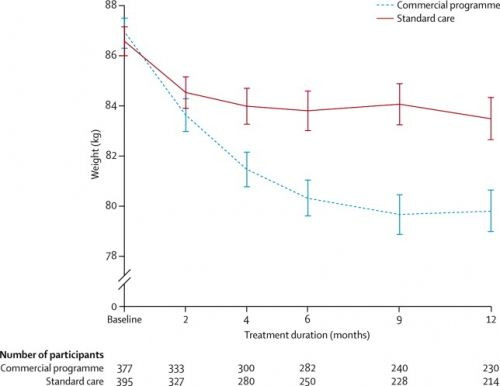Weight Watchers Study Confirms that Mildly Obese Can Lose Weight

Weight Watchers can help mildly obese lose weight after taking their diet, involving weekly meetings, calculations on the number of calories in their diet, and support tools online, a study published in the Lancet Thursday said.
This has led to commentators to suggest that Weight-Watchers be included in some government funded programs to encourage a more 'points' driven approach to 'winning' the fight as ‘Weight Watchers’ are doing.
Led by Dr. Susan Jebb in the UK, participants in the study were not charged the commercial program’s monthly subscription fee and helped to lose weight.
Weight-Watchers participants were encouraged to discuss their behaviors and patterns towards unhealthy foods also having access to the unique tools and recipes such as milk-shakes on the website.
In a journal commentary on the article, Dr. Kate Jolly and Dr. Paul Aveyard of the School of Health and Population Sciences at the University of Birmingham said that prescribing Weight Watchers to patients as part of Government-accessed healthcare might be 'appealing':
"Cost-effectiveness is likely to be a key factor as to whether such commercial programs become part of publicly funded health care, but the low cost of these programs...makes the case for incorporation intuitively appealing." they said.
The overall result of the program was that people participating in 'Weight Watchers' lost fifteen pounds more over the course, compared with standard healthcare regimes.
The greater loss would also have led to a reduction in risk of Diabetes and Heart Disease, the researchers said.



























